Pioneering Change: Facilitating Pause and Reflect with Bangladesh Government Partners
What are some of the organizational challenges that prompted you to develop a pause and reflect activity?
In Bangladesh, Breakthrough ACTION works with the government by providing technical assistance to the six government departments under the Ministry of Health and Family Welfare and One Health Secretariat through its social behavior change (SBC) systems strengthening activity. Government departments encountered significant challenges when adapting policies and programs to align with shifting societal needs, values, and priorities identified by data due to the rising population of the country, lack of manpower, and financial constraints.
Over the years, despite earnest efforts to implement policies for SBC with technical support from national and international nongovernmental organizations, many government programs have faced difficulties due to a lack of systematic reflection and adaptation. Additionally, course correction and improvement become difficult without regular opportunities for reflection and learning.
This approach encountered challenges in sustaining interventions, resource planning, and updating SBC systems. To tackle these issues, Breakthrough ACTION introduced pause and reflect sessions with six government departments: the Bureau of Health Education, Institute of Public Health and Nutrition/National Nutrition Services, National Tuberculosis Control Program, Information Education and Motivation (IEM) Unit, Department of Women’s Affairs, and the One Health Secretariat.
This approach aimed to bridge the gap between policy design and actual implementation, thereby enhancing overall SBC effectiveness and ensuring that government actions were timely and citizen-centered.
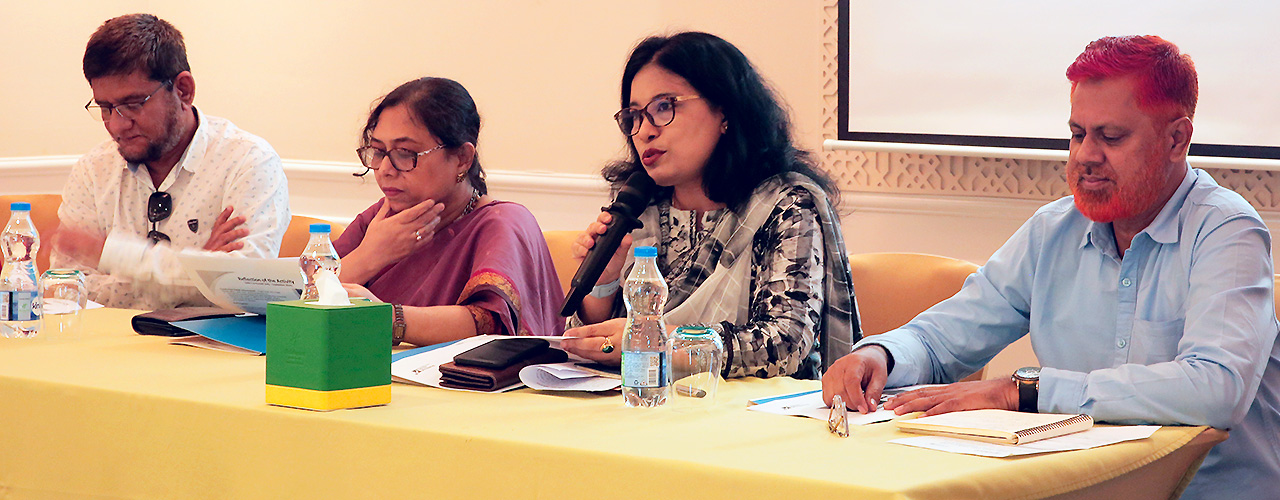
A government focal person from the Department of Women’s Affairs shares her experiences and suggestions during a pause and reflect session. Credit: Breakthrough ACTION Bangladesh
What steps did you take to apply the pause and reflect activity?
The initiative, launched in 2023 by Breakthrough ACTION, engaged key stakeholders, including line directors and program managers from six government departments, to explore grassroots policy impact. Stakeholder interviews and a network mapping exercise revealed that regular reflection on work processes could significantly improve project outcomes. The findings underscored the need for quarterly “pause and reflect” sessions to foster continuous learning and adaptation, enabling organizations to address shifts such as demographic changes or evolving citizen priorities.
Each session brings together senior officials, policy experts, and operational staff from the Government of Bangladesh. The agenda focuses on reviewing past activities, addressing challenges, and setting actionable goals for the upcoming quarter. Participants collaboratively define session objectives to ensure alignment with departmental goals, emphasizing improved project implementation, stakeholder engagement, and organizational responsiveness. Interactive workshops and facilitated discussions provide space for candid dialogue and critical analysis, promoting a deeper understanding of policy impacts and fostering collaboration across departments.
For example, the June 2024 session convened representatives from six departments to strengthen SBC systems in Bangladesh. Participants analyzed activities from multiple perspectives, resulting in a more comprehensive understanding of effectiveness. Stakeholder engagement at national and local levels enriched discussions, while adaptive management practices allowed real-time adjustments. During one session, participants identified issues related to chatbot integration in the IEM unit’s call center, particularly around vendor contracts. Personnel immediately addressed these challenges, showcasing the sessions’ practical value.
Real-time feedback mechanisms, supported by Breakthrough ACTION and government focal points, were crucial for assessing session effectiveness and implementing improvements. This adaptability enabled timely responses to emerging challenges, such as political unrest, ensuring strategies remained relevant and impactful. By promoting interdepartmental learning and collaboration, the “pause and reflect” sessions have cultivated a culture of continuous improvement, empowering participants to address systemic challenges and enhance policy implementation. These sessions are instrumental in driving sustainable, impactful change across government programs and improving governance and public service delivery in Bangladesh.
What are the results so far?
The pause and reflect sessions have notably enhanced coherence and responsiveness within the six government departments. This approach has created a structured environment where personnel regularly address critical matters such as timeline, method of implementation, and technicalities related to implementation and alignment, leading to meaningful improvements in activity implementation and project outcomes.
The pause and reflect sessions have fostered a culture of continuous inquiry and adaptation. For example, departments are more actively questioning whether their strategies and activities effectively meet current needs and address emerging challenges. This has increased the demand for diverse learning opportunities and a more reflective approach to SBC system adjustments. The sessions also provide a platform for examining the impact of activities and strategies on both policy coherence and implementation levels. By integrating feedback and evidence from these sessions, departments have regularly aligned their activities more closely with project timelines and objectives.
How would you advise others who want to do something similar?
Make sure to build strong partnerships. Breakthrough ACTION’s collaboration with the government departments facilitated mutual learning and joint problem-solving.
This was only possible due to getting an endorsement from departmental leadership, who embedded the pause and reflect sessions into regular program cycles. Government leaders provided the time and space for these sessions, allowing for structured reflection and adaptation within the departments.
Of course, obstacles arose. The slow pace of decision making due to bureaucratic processes sometimes hindered the departments’ ability to quickly adapt policies and practices based on session insights. Despite these constraints, Breakthrough ACTION enhanced activity implementation and responsiveness by focusing on effective collaboration and data utilization.
Written by:
Mostafa Ferdous Hassan, Communications and Knowledge Management Officer, with Meei Child and Jarret Cassaniti

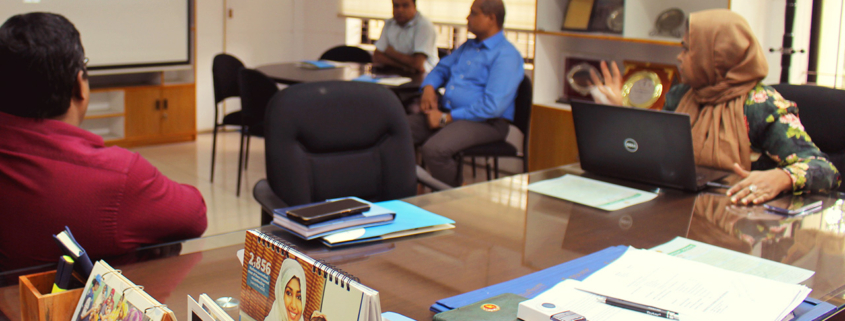 2025 Johns Hopkins University
2025 Johns Hopkins University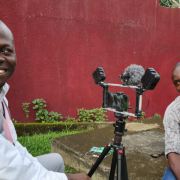 John Hopkins Center for Communication Programs
John Hopkins Center for Communication Programs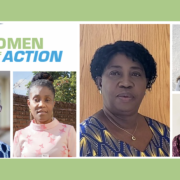
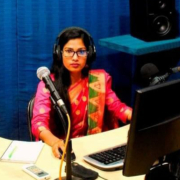
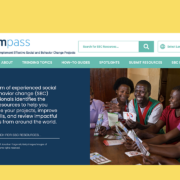
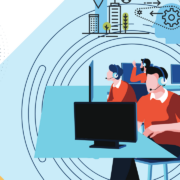
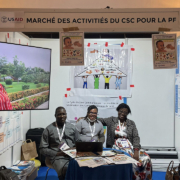 Breakthrough ACTION
Breakthrough ACTION